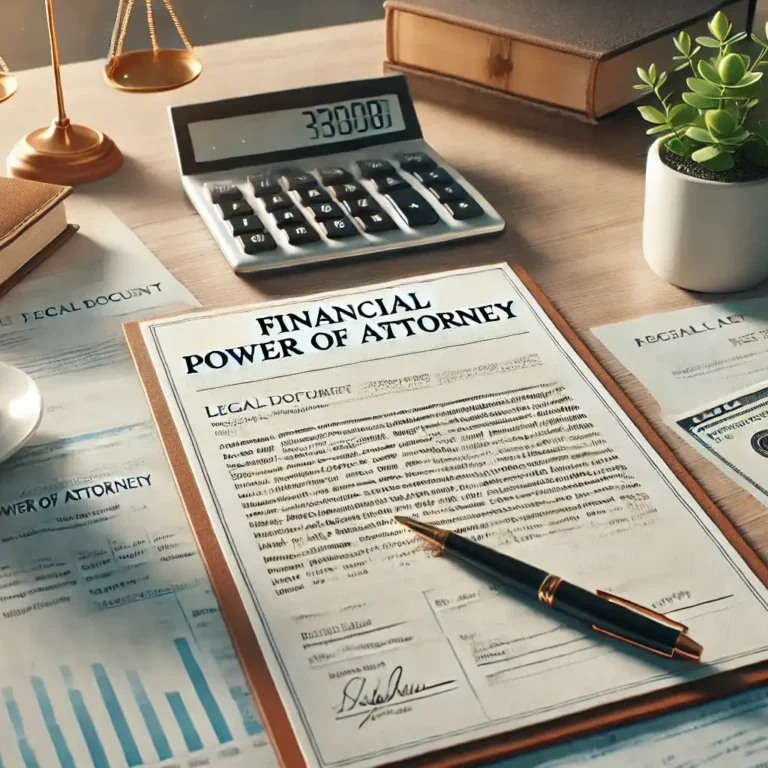Key Considerations for Affordable Estate Lawyers in Las Vegas

How to Choose an Affordable Estate Lawyer in Las Vegas
Choosing an affordable estate lawyer in Las Vegas can be challenging for estate planners and business owners. With legal fees and hidden costs often compounding expenses, it is essential to evaluate every aspect of a lawyer’s offer to receive professional support without breaking your budget. For more insights, consider visiting legaldocexpert.com and contact a dedicated advisor who can guide you through the process. This guide covers key factors including budget identification, lawyer qualifications, communication, pricing transparency, client reviews, and decision-making, offering actionable steps to help you choose a lawyer who meets your legal and financial needs.
Identify Your Budget for Hiring an Estate Lawyer in Las Vegas
Establishing a clear financial framework is the first step toward hiring an estate lawyer. Knowing the maximum amount you can spend helps prevent overspending and creates a realistic plan for your estate planning or probate needs.
Determine the Maximum Amount You Can Afford for Legal Fees
Begin by analyzing your current income, savings, and ongoing expenses related to estate management. Knowing your available funds ensures you are prepared for immediate fees as well as any follow-up costs. Setting a maximum fee provides a benchmark against which you can compare lawyer fees and helps you evaluate whether the cost is justified based on past client expenditures and estimates received during initial consultations.
Consider Additional Costs Beyond the Lawyer’s Fees
In addition to the primary fee structure, extra costs can include filing fees, document preparation, and administrative or notary charges. Even a low hourly rate may come with high administrative costs that exceed your budget. Request a detailed estimate for all potential expenses to create an accurate total cost forecast and avoid unexpected financial stress.
Research Typical Pricing for Estate Lawyers in Las Vegas
Prices for estate lawyers vary based on experience, reputation, and specialization. Typically, hourly rates range from $200 to $500 or may be a flat fee, depending on the case’s complexity. Some lawyers offer free initial consultations while others bundle services into a package. Comparing rates from multiple firms using online reviews, bar association listings, and recommendations can help you set a realistic budget that balances quality and affordability.
Set a Flexible Budget to Accommodate Unexpected Expenses
Even with detailed planning, unforeseen legal or administrative expenses may arise. Allocating a contingency fund of an additional 10% to 20% can cover emergency filings, expedited document processing, or unexpected estate complications. This buffer minimizes the risk of cost overruns and ensures a smoother process.
Evaluate Payment Plans or Options Available
Many estate lawyers offer payment plans to help manage costs. Options may include installment payments with initial retainers or flat-fee arrangements with predictable charges. During consultations, ask about available payment methods, deadlines for retainer fees, and consequences for delayed payments. Flexible payment options can be a decisive factor if you are working with a tight budget.
Research Qualifications and Experience of Estate Lawyers

When choosing legal representation, it is essential to ensure the lawyer is highly qualified. Estate law covers multiple areas, including planning, probate, and tax implications. A lawyer’s proven expertise and familiarity with local laws in Las Vegas are crucial for handling your unique needs.
Look for Lawyers With Expertise in Estate Planning and Probate
A specialized estate lawyer should have thorough knowledge of wills, trusts, power of attorney, estate administration, and property distribution. During initial consultations, ask about the lawyer’s history with similar cases and any specialized training or certifications in estate planning or probate. Focused practice in these areas can lead to a more efficient process and potential cost savings.
Review Credentials, Including Education and Certifications
Verify the lawyer’s credentials by checking their education, certifications, and standing with state or local bar associations. Lawyers from reputable law schools who engage in continuing legal education often bring advanced skills. Membership in professional organizations dedicated to estate planning further reinforces a lawyer’s expertise. Always ask for and confirm these credentials through reliable sources.
Consider Years of Experience in the Las Vegas Area
Local experience is a significant advantage as it means the lawyer is familiar with regional court procedures, local regulations, and customary practices. A lawyer with several years of practice in Las Vegas is more likely to be aware of specific courthouse protocols and relevant taxation nuances, which can be invaluable when managing estate disputes or filings.
Explore Specializations That Align With Your Needs
If your estate involves complex assets, international holdings, or intricate family dynamics, seek a lawyer with specialized experience in those areas. Specializations might include tax planning, business succession planning, or charitable trusts. Alignment between the lawyer’s expertise and your specific requirements can lead to more effective, tailored legal advice.
Seek Testimonials or Reviews From Past Clients
Client testimonials and online reviews provide insight into a lawyer’s competence, communication style, and reliability. Look for consistent positive feedback regarding transparent billing, responsiveness, and successful outcomes. Negative reviews or recurring issues should prompt further investigation before any commitment.
Assess Communication Style and Availability
Effective communication is the foundation of any client-lawyer relationship. In estate matters, where sensitive information is at stake, your lawyer must be accessible, responsive, and clear.
Schedule Initial Consultations to Gauge Responsive Communication
An initial consultation is essential to assess a lawyer’s communication style. Observe how promptly they respond, how clearly they explain legal concepts, and whether they take the time to understand your specific needs. Good communication during these initial meetings is indicative of the service you can expect throughout the representation.
Contact Legal Doc Expert Today!
Ask About Preferred Modes of Communication and Response Times
Clients have different communication preferences. Ask whether the lawyer prefers email, phone, or in-person meetings, and what the typical response times are for inquiries. For example, a lawyer who commits to answering emails within 24 hours and gives regular updates shows transparency and reliability.
Evaluate Whether the Lawyer Listens to Your Concerns
Active listening is a key quality. During consultations, note if the lawyer asks follow-up questions, reiterates your concerns, and demonstrates genuine interest in your situation. This skill ensures that the legal strategy will be personalized and effective.
Determine Their Availability for Follow-Up and Updates
Since estate matters can evolve, regular updates are vital. Inquire how often the lawyer will update you and if they are available for emergency consultations. A structured follow-up schedule (e.g., weekly or biweekly) can help maintain confidence and clarity throughout the process.
Assess Comfort Level in Discussing Sensitive Information
Estate planning requires sharing personal details. Ensure that your lawyer maintains confidentiality, respects your privacy, and creates a comfortable environment. Feeling at ease during consultations is crucial for open and honest communication.
Check for Hidden Fees and Pricing Structures

Clear, upfront pricing is essential to avoid unexpected legal expenses. Understanding the full cost structure helps you make an informed decision.
Request a Detailed Breakdown of All Potential Fees
Ask for a comprehensive breakdown of all fees, including lawyer charges, document filings, administrative work, and any other costs. A written cost estimate clarifies each component, helping you avoid surprises later.
Contact Legal Doc Expert Today!
Inquire About Retainer Fees and Payment Schedules
Lawyers typically require a retainer fee. Clarify how much is needed, when it is due, and how it will be applied to subsequent billing. Understanding scheduled billing cycles—whether monthly, milestone-based, or as lump sums—provides insight into your long-term financial commitment.
Understand How Charges for Consultations Are Handled
Determine if the initial consultation is free or fee-based. Some offices deduct consultation fees from future services, while others charge separately. Clarifying this prevents misunderstandings regarding overall costs.
Clarify Billing Practices for Additional Services
Ask how extra services like document preparation, court filings, and administrative support are billed. Whether these are charged hourly, as a flat fee, or included in packages, transparent billing practices help you plan your budget more accurately.
Evaluate Any Extra Costs for Document Preparation or Filing
Request an itemized list of any extra charges that may arise, such as fees for filing probate cases or preparing detailed estate documents. This detailed breakdown lets you compare the true cost of legal services and avoid unexpected charges.
Read Reviews and Gather Recommendations
A lawyer’s reputation can be a strong indicator of their reliability and effectiveness. Use multiple sources to check reviews and gather recommendations.
Consult Friends or Family for Trusted Referrals
Personal referrals are valuable as they come from trusted sources. Ask friends, family, or colleagues who have dealt with estate lawyers about their experiences, both good and bad.
Explore Online Reviews on Reputable Platforms
Websites such as Avvo, Martindale-Hubbell, and Google Reviews offer public feedback. Look for recurring themes regarding cost, communication, and case outcomes to form a balanced view of the lawyer’s reputation.
Check With Local Bar Associations for Recommended Lawyers
Local bar associations compile lists of reputable estate lawyers. These endorsements are based on a lawyer’s history, ethical standards, and professional conduct, providing an additional layer of verification.
Consider Client Feedback on Successful Case Outcomes
Focus on reviews that detail successful case results, efficient resolution of issues, or significant cost savings. Tangible examples of positive outcomes help confirm the lawyer’s ability to manage your estate effectively.
Analyze the Lawyer’s Reputation in the Las Vegas Community
A longstanding presence in the local community is a positive sign. Consider whether the lawyer is known for active community engagement and has solid relationships with local courts, which can be beneficial for your case.
Make an Informed Decision on Your Estate Lawyer

After evaluating financial factors, qualifications, communication, and reviews, it is time to choose the lawyer who best meets your needs. This decision should balance expertise, affordability, and personal comfort.
Compare Shortlisted Lawyers Based on Evaluations
Create a comparative list summarizing each lawyer’s fee structure, experience, communication style, and client reviews. The table below can help visualize the differences:
| Lawyer Name | Fee Range | Years of Experience | Communication Style | Notable Client Reviews |
|---|---|---|---|---|
| Attorney A | $200-$300/hr | 10+ years | Responsive, clear updates | Positive, detailed outcomes |
| Attorney B | $250-$350/hr | 8 years | Prompt, excellent listener | High satisfaction ratings |
| Attorney C | Flat $3000 fee | 12+ years | Very detailed, patient | Efficient, cost-effective |
| Attorney D | $220-$320/hr | 9 years | Open communication | Transparent billing practices |
| Attorney E | $200/hr on retainer | 15+ years | Friendly, accommodating | Consistently successful cases |
Legal Doc Expert – Estate Planning Price Guide
Review and compare these data points alongside your consultation notes to objectively determine which lawyer best meets both your legal and financial requirements.
Weigh Pros and Cons Based on Your Meetings
Consider the strengths and weaknesses observed during consultations. Weigh factors such as transparency in billing, clarity of communication, and specialization in estate planning. A lower fee with hidden costs may not offer better value than a slightly higher rate with clear, predictable pricing.
Ensure Alignment With Your Legal Goals and Budget
Confirm that the chosen lawyer’s expertise aligns with your specific estate needs—whether drafting a will, establishing a trust, or handling probate. Their understanding of your unique situation is essential for achieving the desired results.
Confirm That You Feel Comfortable With Your Final Choice
Your comfort and trust are as important as professional qualifications. Ensure that you feel at ease sharing sensitive information and that any doubts are resolved in a final consultation before proceeding.
Finalize the Agreement and Clarify Next Steps With Your Lawyer
Once you have made your choice, finalize the agreement by documenting all costs, timelines, and responsibilities in a formal retainer or contract. Clarify the next steps—whether gathering additional documents, scheduling further meetings, or beginning legal proceedings—to ensure mutual understanding and prevent future misunderstandings.
Frequently Asked Questions
Q: How can I determine an appropriate budget for hiring an estate lawyer in Las Vegas?
A: Review your financial situation, including income and savings, and assess typical fee ranges for estate lawyers in Las Vegas. Factor in additional costs such as filing and administrative fees and include a contingency fund of 10–20% to cover unforeseen expenses.
Q: What credentials should I look for in an estate lawyer?
A: Look for specialized expertise in estate planning and probate, confirmed by proper education, certifications, and membership in professional organizations. Local experience and positive testimonials are also key indicators of a lawyer’s qualifications.
Q: How important is communication when selecting an estate lawyer?
A: Effective communication is critical for receiving clear updates and discussing sensitive matters. Evaluate the lawyer’s responsiveness, preferred modes of communication, and whether they actively listen to your concerns during initial consultations.
Q: How can hidden fees impact the overall cost of hiring an estate lawyer?
A: Hidden fees such as charges for document preparation or filing can significantly increase overall expenses. Requesting a detailed fee breakdown upfront ensures transparency and helps you compare offers accurately.
Q: What steps should I take before finalizing my choice of estate lawyer?
A: Compare shortlisted lawyers based on experience, fee structures, and client reviews. Evaluate each candidate during consultations, weigh the pros and cons, and ensure that you are comfortable sharing sensitive information. Finally, ensure that all costs and next steps are clearly outlined in the agreement.
Final Thoughts
Choosing an affordable estate lawyer in Las Vegas requires balancing financial considerations with professional competence. By clearly defining your budget, carefully assessing credentials and communication styles, ensuring pricing transparency, and reviewing client feedback, you can make a well-informed decision that meets both your legal and financial needs. A thoughtful selection process lays the foundation for effective estate management and long-term peace of mind.






